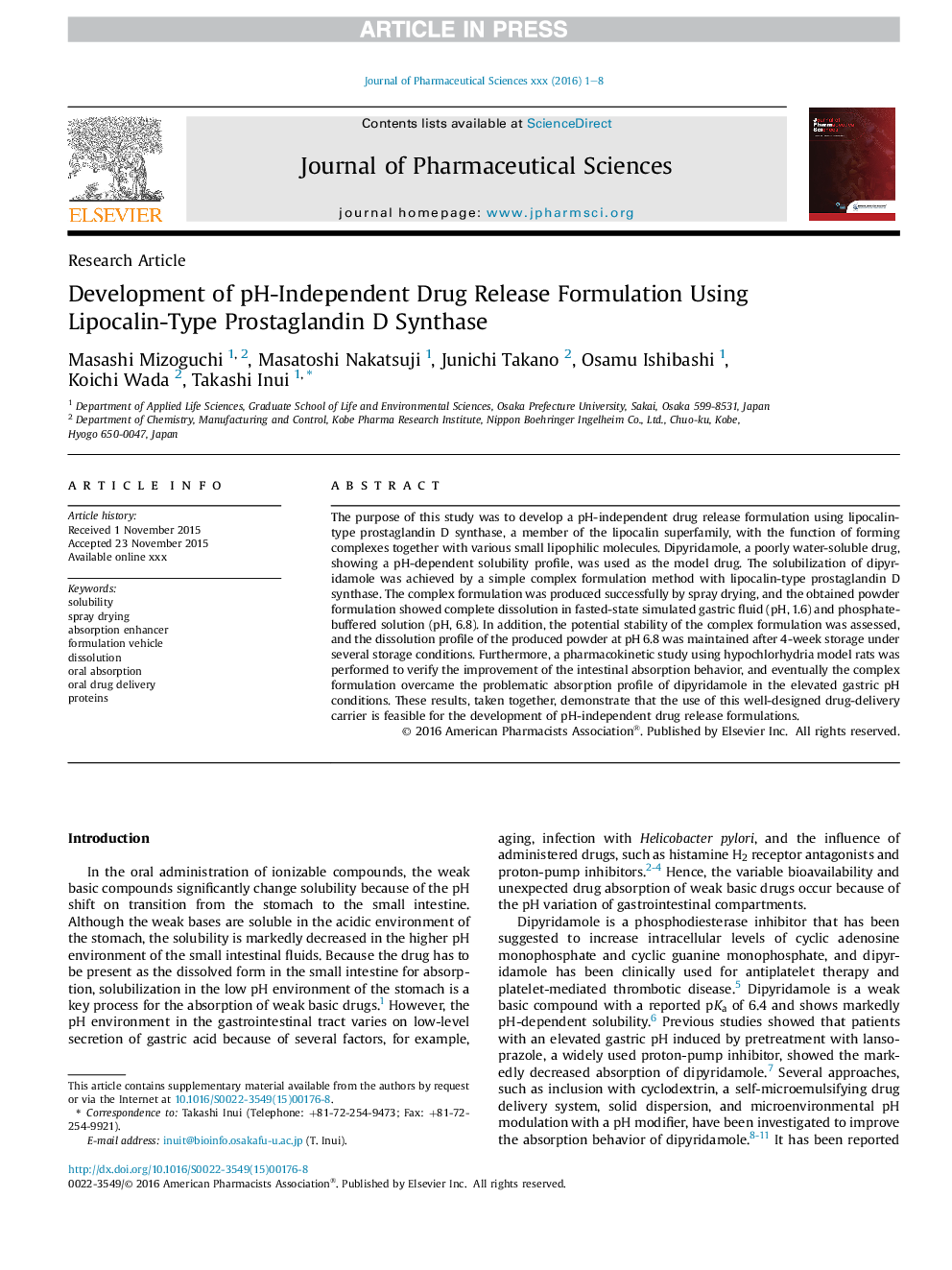| Article ID | Journal | Published Year | Pages | File Type |
|---|---|---|---|---|
| 8514950 | Journal of Pharmaceutical Sciences | 2016 | 8 Pages |
Abstract
The purpose of this study was to develop a pH-independent drug release formulation using lipocalin-type prostaglandin D synthase, a member of the lipocalin superfamily, with the function of forming complexes together with various small lipophilic molecules. Dipyridamole, a poorly water-soluble drug, showing a pH-dependent solubility profile, was used as the model drug. The solubilization of dipyridamole was achieved by a simple complex formulation method with lipocalin-type prostaglandin D synthase. The complex formulation was produced successfully by spray drying, and the obtained powder formulation showed complete dissolution in fasted-state simulated gastric fluid (pH, 1.6) and phosphate-buffered solution (pH, 6.8). In addition, the potential stability of the complex formulation was assessed, and the dissolution profile of the produced powder at pH 6.8 was maintained after 4-week storage under several storage conditions. Furthermore, a pharmacokinetic study using hypochlorhydria model rats was performed to verify the improvement of the intestinal absorption behavior, and eventually the complex formulation overcame the problematic absorption profile of dipyridamole in the elevated gastric pH conditions. These results, taken together, demonstrate that the use of this well-designed drug-delivery carrier is feasible for the development of pH-independent drug release formulations.
Keywords
Related Topics
Health Sciences
Pharmacology, Toxicology and Pharmaceutical Science
Drug Discovery
Authors
Masashi Mizoguchi, Masatoshi Nakatsuji, Junichi Takano, Osamu Ishibashi, Koichi Wada, Takashi Inui,
